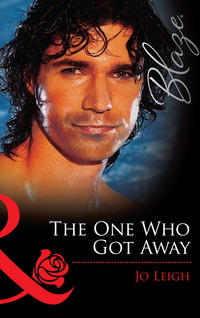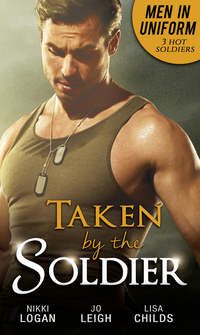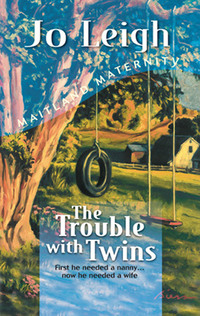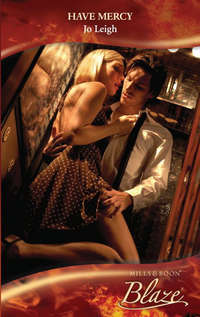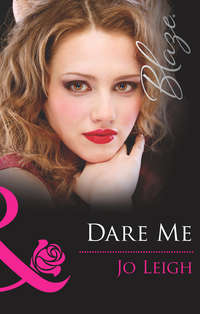
Полная версия
Confessions Bundle
The footsteps stopped.
“So, completely useless.”
“Yes.”
“Then what happened?”
Schuster began to pace again. Juliet knew by heart the expressions the man was wearing for the jurors’ benefit. But hers would be the ones they took with them into deliberation.
“I called my mother and she relayed the information to my father, who confronted James. She called the next day to tell me James had admitted the land was worthless, but claimed that he’d only just discovered that himself. He’d been swindled with the rest of his investors.”
“Mr. Ramsden, would you say your father was a savvy businessman?”
“Absolutely.”
“As a matter of fact, he’d never made a bad investment in his life, had he?”
“This was a first.”
“Why do you think he was so successful in that area? Luck?”
Blake gave a humorless chuckle and Juliet glanced up instinctively. And then quickly away. He wasn’t smiling, his lips were twisted into an “I know better” quirk that Juliet recognized all too well. She’d seen it directed at her just that morning, from a pair of eight-year-old lips in her closet at home.
“Walter Ramsden would never have given up control of his life, or his money, to something as capricious as luck. He was successful because he had an uncanny talent for evaluating people—as though he had a second ear that heard what a person wasn’t saying as clearly as what he was.”
“And what did your father have to say about the Eaton Estates deal?”
“When I spoke to my mother after my father’s meeting with Eaton, she said he was certain James was lying. That the man had known before he bought the property that it was wasteland. And that he’d paid a fraction of the cost claimed on the notes he’d passed on to my father. He also said there was no way of proving his suspicion, that Eaton had his bases all very well covered, including the fact that no extra money had turned up anywhere else.”
“So, how do you explain, if your father was this talented…” Schuster paused and approached the jurors.
Juliet gave the man full marks for the little bit of emphasis he put on that word, leading the jury right to the thought they were already going to have, that perhaps Walter Ramsden wasn’t as gifted as his son claimed, thus voiding the value of Blake’s testimony. She knew, too, that whatever was coming next would plant in their minds something that would discount that suspicion. In a detached, analytical way, she waited to see how he pulled it off.
“…if Walter Ramsden did indeed have the ability to sense the potential legitimacy of his business associates, why did he invest in Eaton Estates?”
Surprised when Blake didn’t immediately answer, Juliet looked up and saw the hesitation in his eyes, eyes that stared out but weren’t focused. Pen to tablet, she scribbled.
“I know why. I’d been abroad at the time, studying architecture—and volunteering on various development projects. According to my mother, my father followed my progress from country to country.”
He paused. Juliet was staring. This was nothing like the man she’d known that night so long ago. That Blake Ramsden had come close to hating his father—or at least the tyranny with which the old man had ruled his son.
“At the time the Eaton offer was first made, I was in Honduras, helping modernize a village whose population was three children to every adult. They were all hungry, poverty stricken. Eaton offered to feed those kids.”
Damn. The jurors were swimming right toward Schuster. He was good. Almost as good as she’d heard.
And she knew what was coming next.
“If it pleases the court, I’d like to submit Exhibit double Z into the records.” Schuster pulled out the document he had faxed to Juliet’s home Sunday night. “This is a record of a land assessment inspection showing that the property was sinking.
“Please note, further,” Schuster said softly, “the date of the investment is the month before the sale date.” He walked the document over to Blake Ramsden. “Can you confirm this is the same document you saw?”
A long pause followed. Juliet shifted in her seat. Glanced at the judge. The jurors. Tapped her pen against the back of her left hand.
Eaton moved beside her, breathing heavily. Reaching over, Blake handed back the document. “Yes.”
Juliet put her hand on Eaton’s knee. “It’s okay. Sit still. We get the ball last.”
He sat back, but he wasn’t calm. No one was. It was another five minutes before Judge Lockhard offered her the witness for cross-examination.
This time, Juliet accepted the offer. She had no desire to spend a second day in court with Blake Ramsden.
Picking up her black leather-bound tablet, Juliet rose. She didn’t need the notes. She could recite them—and everything in between the lines—by rote. But she needed something to look at.
It felt good to stand. To move around after so many hours of sitting.
She was going to have to connect with the witness if she wanted the jury to connect to the response she drew from him.
With a long slow breath, she approached the witness stand. Looked up. Smiled.
And had to swallow when he smiled back.
Mary Jane’s smile.
“Mr. Ramsden, I’m sure you understand, as does the jury, that the point in question here is not whether Eaton James had various business interests that showed no profit or loss, or even any movement. Anyone can establish a business and then not do anything with it. It is, as the prosecutor has so adeptly shown, just a matter of paperwork. The question is one of intent. Did Eaton James intend to rob people of their money? Or was he just an honest businessman who didn’t have the luck of one as talented as, say, your father?”
She paused. Stood right in front of him and didn’t look away. His tie was slightly lopsided, made to appear more so by the way the wider maroon stripe came around the left side, while the right was flanked by a skinnier gray one.
“According to your testimony, you believe that the former was the case, is this correct?”
“It is.”
His eyes were different. Older. And though she wouldn’t have thought it possible, more compelling.
Not that it mattered. She was older, too. Different things caught her attention these days.
Things like the conversation she’d be having with Mary Jane that night at the dinner table. Her daughter was going to grill her. And Juliet had to be able to give straight answers.
“Tell me, Mr. Ramsden, how long did your father expect you to stay abroad?”
His eyes narrowed. “A year.”
“And how long, in fact, were you away?”
“Almost four years.”
“Four years.”
She stood there, palms on the stand, nodding. “Did you ever come home for a visit during that time?”
“No.” Blake’s face was impassive.
“But you spoke with your father often? Holidays, Sundays, and so on. You were, after all, his only child.”
“I was, yes.”
Bingo. He hadn’t answered the first question. Her interpretation of the expression she’d read earlier had been right on. It was a talent she’d come to rely on and breathed a sigh of relief every time it came through for her.
“And did you speak with him often?”
“No.”
“You didn’t?” She sounded shocked. “Well, how often then? Once a month? Twice, maybe?”
“I spoke to him once.”
“Once a year?”
“Once. Period.”
“In four years you spoke to your father only once?”
“Objection, Your Honor!”
It had taken him long enough.
“Your Honor—” Juliet stepped up to the bench “—Mr. Schuster’s line of questioning was based on Mr. Ramsden’s opinion of his father. I’m only clarifying the relationship upon which that opinion was based.”
“Sustained.”
In the early days, Juliet would have turned around to see Schuster’s reaction. Such things didn’t matter anymore.
“Just out of curiosity, would you mind telling the court when that one phone call took place?”
“A year after I’d left.”
“When you were due to come home.”
“That is correct.” He nodded once, his gaze steady on hers. The challenge only spurred a rush of adrenaline that had given her the edge up most of her life.
“So…if your father’s business acumen had changed, say, due to old age, or perhaps a growing forgetfulness or loneliness for his only son, maybe you wouldn’t have known.”
The room was silent. Juliet could feel the jurors’ eyes, but even more, the force of their attention.
“I was in touch with my mother. She never indicated that was the case.”
Had she been playing a game of mock court, as she’d done with members of her study group in law school, she’d have issued a polite and grinning thank you very much for the opening he’d just given her.
“Ah, your mother. How did she take your absence?”
“Naturally, she missed me.”
“Naturally. As, I assume, did your father.”
Blake didn’t answer. She didn’t push.
“Would you think it possible, knowing your mother as well as you did, realizing the difficult position she must have been in, that she could have colored the truth just a bit? Perhaps she focused on the Honduran children as your father’s reason for the purchase just to play on your sympathies, to bridge the gap between the two of you. To make you feel you still had his support?”
“My mother did not lie.”
“I didn’t say she did, Mr. Ramsden. I asked if it was possible that certain aspects of the Eaton deal took on more significance for her than others?”
He stared straight at her. And there was anger in his eyes.
“Please answer the question.”
“It’s possible.”
“That said, it’s also possible that she misinterpreted the other things she relayed about this particular business transaction. Perhaps even to use it as leverage to bring you home.”
“No.”
“Did you know, Mr. Ramsden, that a letter was sent from Eaton James to all the Eaton Estates investors, telling them of their loss?”
“Yes, it arrived a couple of days after my mother called to ask me to visit the property.”
“It was postmarked two days before.”
“It arrived two days after.”
“Or not.” Juliet stepped back. “It’s possible, Mr. Ramsden, that your mother already knew the land was worthless when she called to have you check it out, isn’t it?”
“It’s highly unlikely.”
“But possible.”
His chin dropped again, more slowly this time. And then rose again. “Yes.”
Juliet turned, as though going back to her seat. And then, three-quarters of the way there, she turned back.
“One other thing.” She saved lives by playing the barracuda. And right now, the future of an admittedly stupid but innocent businessman was on the line. “Your father died of a heart attack the next year, did he not?”
“He did.”
“He was driving at the time.”
“Yes.”
“And your mother was in the car.”
“Yes.”
“You lost them both. I’m so sorry.” She looked down. Thought about Eaton’s wife—and teenage children—sitting behind them. The lives she was attempting to save.
Blake said nothing.
“Did you realize your mother knew about your father’s bad heart?”
“Not until I got home.”
“But she knew. Had known for almost two years.”
“Yes.”
“Wouldn’t you think that knowing her husband could go at any moment might be motivation enough to do whatever it took to get her only son home?”
She’d done what she’d been hired to do. She’d discredited his testimony. And lost his respect.
For the first time in her life, Juliet hated her job.
“No more questions, Your Honor.”
CHAPTER FIVE
JULIET MCNEIL HUNG around for a long time. Schuster had gone. The press had gone. Even Eaton James and his family had ridden down the elevator to the first floor of the California Superior Court. Still, though he had no real logical reason for doing so, Blake stood there at the bank of elevators and waited.
He was done here. Unless called for further testimony, he’d been dismissed and wouldn’t be back. He’d lived in the same town with Juliet McNeil for five years and found no reason to be in touch with her. Had had nothing to say to her.
Voices came from down the hall. Male. And one very distinctive female. The men came around the corner from the courtroom. Nodded at Blake, pushed the down button. Juliet must have stopped off in the women’s room at the juncture of the two hallways.
An elevator came. The two men, apparently attorneys on Juliet’s staff, held the door, looking at him. Blake shook his head. And they were gone.
It was better this way, with no one around. Just a quick acknowledgment, for old times’ sake. Something he might not have bothered with if not for the funeral he’d attended over the weekend—and all the memories aroused by the past week.
Hearing the swish of a door, Blake stood upright, hands in the pockets of his gray slacks, facing the hall. Her head pulled back a bit when she saw him, but her step didn’t falter. She had to be the most confident woman he’d ever met.
That confidence had attracted Blake nine years ago. And attracted him now.
“I thought you’d be long gone.” That was another thing he remembered quite clearly about that foggy night so long ago. The woman had a habit of saying what was on her mind rather than couching her thoughts in platitudes. Disconcerting.
And yet, delightfully refreshing in that he’d known where he stood with her. There’d been no game playing. No social dishonesty.
“I never had the chance to say hello.” He pushed the down button. “And didn’t want to go without at least saying goodbye.”
“Oh.” Her hair was still long—the gold-streaked auburn color striking—and curled past her shoulders. “Well, I wish it could have been under different circumstances, but it was nice seeing you,” she said. She didn’t avoid looking at him, but gave equal attention to the lighted bar atop the elevator, indicating the car’s current floor.
“You look good.”
“You, too.” Except that she wasn’t really looking. And then she did. “I watched your office building go up. Impressive. You’re doing very well.”
Blake nodded. “I had good teachers.” Including his father, the man he’d spoken of so harshly that night just before he’d left the country. Was that what this was about? A need to correct any misconceptions? He’d been a kid then. Too concerned with his own rights and far too insensitive to those of others.
“I’m…uh…sorry.” She tilted her head in the direction of the courtroom from which they’d come. “For back there.”
“We were on opposite sides of the fence,” he told her—as though neither of them could have expected anything different.
The elevator came. Blake held open the door while she stepped inside, then joined her. Standing against the side wall, her briefcase held with both hands down in front, she’d already pushed the first-floor button.
“Still,” she said, glancing over at him, “I wouldn’t blame you if there were some hard feelings.”
“Oh, there are definitely those,” he admitted, thinking of James. “Just not directed at you.”
The quick tilt of her chin, more even than the light in her eyes, gave away her surprise. “Well, thank you.” She smiled.
And he knew he wasn’t done yet.
“How would you feel about getting a bite to eat?”
The elevator stopped and she got out, frowning. “Tonight?”
“Doesn’t have to be.” He followed her over to a decorative column off to the side of the building’s entryway and leaned against it.
“I…”
Blake could sense a refusal coming. “Or just a drink sometime,” he offered. “For old times’ sake.”
“You’ve been home five years. Old times have taken quite a while to come calling.” The easy grin on her face took any sting out of the words.
She was right.
“I…my ex-wife died last week.” Blake was uncomfortable with the personal admission. “I hadn’t seen her in years, but that, plus the whole Eaton James thing, has brought up a lot of old memories. I feel like I have some things to set straight. Unfinished business, maybe.”
“We finished our business.” Her head tilted up at him, those green eyes with their mysterious brown flecks, had him thinking otherwise.
“I’m not arguing with that,” he offered. “I guess I’m just looking for some closure on that whole phase of my life. Think you could humor me long enough for a conversation?”
“I guess.”
He wondered at her hesitancy. “You have a significant other out there who might not understand?”
“No.” She shook her head. “I’m not married or otherwise significantly, uh, connected.”
“Because you’re still afraid that a relationship would take away your freedom?”
When he’d married Amunet, he hadn’t thought he’d robbed his wife of her liberty, but he couldn’t have been more wrong. Their marriage had certainly trapped her. Or changed her, anyway. Enough so that she’d eventually been driven to suicide?
“Not really,” Juliet said, her gaze clear. “Anyway, it wasn’t my freedom I was protecting back then. I just needed to know that I could provide for myself before I relied on anyone else. I needed to believe in me.”
He nodded. That he understood. It had taken four years away and more time back home before he’d discovered that.
“Are you dating someone?”
She shook her head, lower lip protruding slightly. “No. You?”
“No.” He couldn’t tell if his reply had any effect on her. Not that it mattered.
“So what about that drink?”
“If you can make it early, say, four o’clock or so, I can do Thursday this week. Just once. For old times’ sake.”
Right after court.
Blake nodded. “Thursday it is.”
HAVING BUILT a successful career on finding different ways to present the truth, Juliet failed miserably, over the next two days, to come up with a truth that would suffice as a plausible excuse to cancel her drink date with Blake Ramsden.
She just couldn’t find a way to say, “I don’t want to see you ever again because you’re the father of my daughter and I don’t want you to know that.”
“You’re wearing red again.” Mary Jane was sitting at the kitchen table Thursday morning, chewing her favorite marshmallow-and-oat cereal, her legs bouncing beneath her.
“It’s my third day on the hot seat.”
“That’s green day.”
The kid knew her too well. She was too predictable. Had life really become so obsessively the same that someone could predict her day based on the colors she chose? Or was it just Mary Jane who’d always been too perceptive?
“I’m having a drink with Blake Ramsden after court this afternoon.”
“While I’m at Brownies,” Mary Jane said, nodding, her attention still on her cereal. “Good thinking.”
Juliet dropped into the chair closest to her daughter, reaching over to push curls back from the girl’s cheek, knowing they were going to spring right back.
“Don’t you want to know why I’m meeting him?”
Wide eyes, such a strange contrast of all-knowing adult and unsure little girl, stared up at her. “I don’t think so.”
“Are you worried?”
“How can I be? I just found out about it.”
“Are you mad?”
“No.”
“But?”
“I don’t want a dad. I like us just the way we are.”
Life just never quit getting harder. No matter how many hurdles she maneuvered through successfully. “I like us just the way we are, too.”
Frowning, Mary Jane pushed away her not-quite-empty bowl. “You promised you wouldn’t tell him about me.”
“I’m not going to tell him.” She paused to assess the doubts that had been plaguing her for almost a week. Everything happened for a reason and the timing of Blake Ramsden’s return to her life had occurred just as she was struggling to help Mary Jane find her place in the world.
Every day, when she dropped the child off at school, she waited for a phone call. And every afternoon, when she picked her up, she breathed a sigh of relief.
It wasn’t normal.
Picking up the bowl, she took it to the sink, rinsed it, put it in the dishwasher. “Here’s your lunch,” she said, taking the brown bag out of the refrigerator.
Mary Jane reached for the bag, looking up, her expression not quite as open as usual.
“Hey, remember our deal,” Juliet said, holding her daughter’s free hand.
“What?”
“If ever there comes a time that you want to meet Blake, you let me know.”
“I won’t—”
“And,” Juliet interrupted, “if ever there is a time when I think I have to tell him about you, I’ll discuss it with you first. I promised, Mary Jane, and I’ve never broken a promise to you.”
It took a moment for the clouds to disappear, but after a little bit of thought the little girl smiled up at her.
“I know,” she said.
Juliet just hoped she didn’t live to regret having made that promise.
WALKING INTO the upscale downtown bar on Thursday, Juliet took a cursory glance around, hoping Blake would be late. She could say she’d been there and leave before he showed up.
It would be the truth—and the best version of it she’d managed to concoct.
Her second best idea had been to look, but not very hard, only enough to say she’d been there and hadn’t seen him, and then get the hell out before he saw her.
Her third and final hope had been that he wouldn’t show.
She saw him as soon as her eyes adjusted from the day’s bright sunshine to the bar’s interior. Sitting in a rather secluded booth for two, he should have been easy to miss. But no, her eyes were drawn right to him.
“Hi.” Juliet slid in across from him, trying not to notice how broad his shoulders looked minus the suit coat he’d been wearing the other day.
“Red, again,” he greeted her with a curious smile. “A brave move for a redhead.”
“My hair’s not—”
“I know, I was teasing,” he admitted. “Your hair is auburn.”
They’d had that conversation nine years before. When she’d been wearing nothing at all and he’d been playing with her hair against her breasts, telling her he’d never seen anything quite like it.
It had been right after they’d made love the second time with the first condom—the time, she’d long ago decided, that she had conceived Mary Jane.
“And the suit looks great,” he said when she didn’t respond. “Beautiful in fact.”
She wished he’d stop catching her off guard. “Thank you.” It had been a long time since she’d felt desirable, and life was much more under control that way.
They ordered drinks, the bar’s specialty, a mixture of rum, vodka and a couple of exotic fruits. Blake added an order of chips and salsa.
“We’re driving,” he explained as the waiter left. “It’s not good to drink on an empty stomach.”
She appreciated the forethought.
“Fine by me,” she told him. “I missed lunch today and I’m starving.” She’d been busy calming Kelly James, who was beginning to panic. That was the worst thing Eaton’s wife could do. This trial was all about character—and proving that neither James nor his family or associates had any doubts about his.
Blake asked about the trial while they waited for their drinks. She felt like a Democrat talking to a Republican. Or a Republican talking to a Democrat. They both wanted justice to be done, wanted what was best for society at large and saw the way to get there on opposite ends of the spectrum.
“It’s obvious the man is guilty,” Blake told her fifteen minutes into the conversation. “If you really want to serve the Constitution, you’d see that and help him get the fairest punishment.”
“He’s not guilty until proven so beyond a shadow of a doubt,” Juliet reminded him. “And until that happens, he deserves to be treated that way. As though he’s not guilty. Meaning, I believe what he tells me and my job is to try to persuade those sitting in judgment to do the same.”
“Regardless of what you think personally.”


